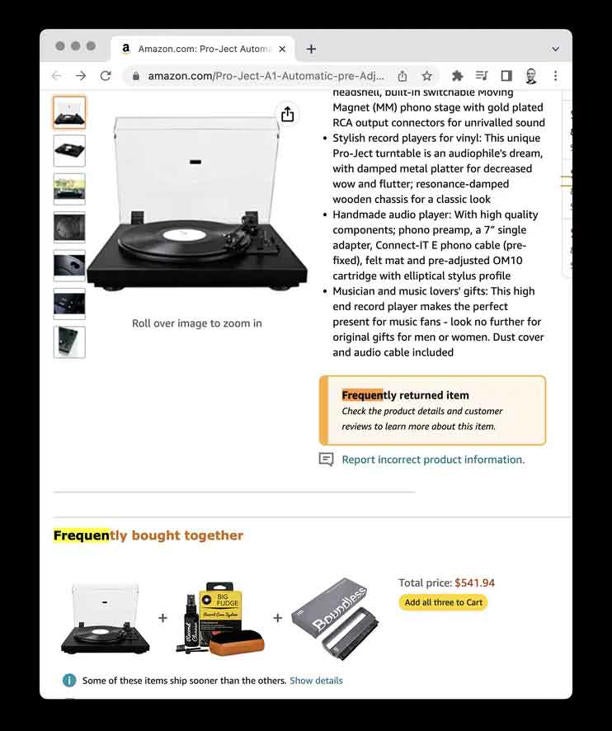Amazon built its business on customer service, believing everything would fall into place if the company made shopping easy and convenient. Case in point: Their return policy allows customers to return millions of items they don’t want free of charge.
But that return policy is also wildly expensive. In 2021, a record $761 billion of merchandise was returned to retailers, according to the National Retail Federation.
Now Amazon wants its customers to think twice before sending products back. The e-commerce giant has quietly implemented a new policy, charging customers a $1 fee if they return items to a UPS store instead of a Whole Foods, Amazon Fresh, or Kohl’s closer to their address, according to a report in The Information.
Amazon owns Whole Foods and Amazon Fresh, and Kohl’s partners with the company.
Amazon is also warning consumers about “frequently returned” items sold on their site. They recently introduced a badge that tells shoppers to check the product details and customer reviews on items with higher return rates in their product category.

Related: San Francisco Whole Foods Closes To ‘Ensure Safety’ of Employees
Amazon cutting costs
The new return fee is the latest in a series of cost-cutting measures implemented by Amazon. Last month, the company announced it would be laying off 9,000 workers, following an earlier round of layoffs last year that saw pink slips handed out to more than 18,000 employees.
While Amazon’s return fees are surprising, they’re not unprecedented. Other retail chains have recently done away with their free online return policy, including Abercrombie & Fitch (which charges $7), American Eagle, Foot Locker, Urban Outfitters, and Zara.
If there is any good news to come out of these new return policies, it’s that they have a positive impact on the environment. Returns cause 16 million metric tons of carbon emissions and up to 5.8 billion pounds of landfill waste in the U.S. each year, according to Optoro.
Less returns mean less waste — even if it may cost you a buck.
